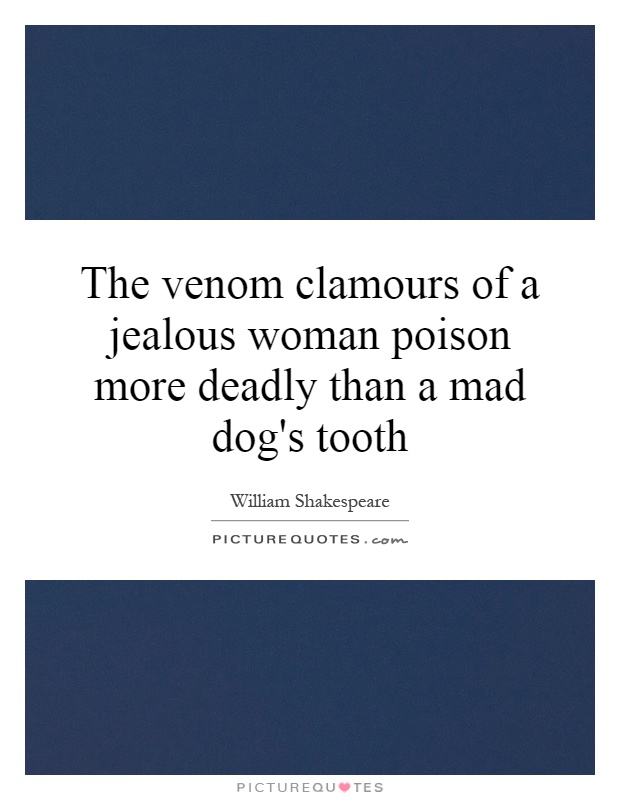The venom clamours of a jealous woman poison more deadly than a mad dog's tooth

The venom clamours of a jealous woman poison more deadly than a mad dog's tooth
In William Shakespeare's works, jealousy is a recurring theme that often leads to tragic consequences. The quote "The venom clamours of a jealous woman poison more deadly than a mad dog's tooth" perfectly encapsulates the destructive power of jealousy, particularly when it is fueled by a woman's emotions.One of the most famous examples of jealousy in Shakespeare's plays is found in "Othello." The character of Iago is consumed by jealousy and resentment towards Othello, leading him to manipulate and deceive those around him in order to bring about Othello's downfall. Iago's jealousy is like a venomous poison that infects everyone it touches, ultimately leading to tragedy and death.
In "The Winter's Tale," Shakespeare explores the destructive nature of jealousy through the character of Leontes. His jealousy towards his wife Hermione and his friend Polixenes leads him to falsely accuse Hermione of infidelity and to order the death of their infant daughter. Leontes' jealousy is like a mad dog's tooth, causing him to act irrationally and violently, ultimately leading to the destruction of his own family.












 Friendship Quotes
Friendship Quotes Love Quotes
Love Quotes Life Quotes
Life Quotes Funny Quotes
Funny Quotes Motivational Quotes
Motivational Quotes Inspirational Quotes
Inspirational Quotes